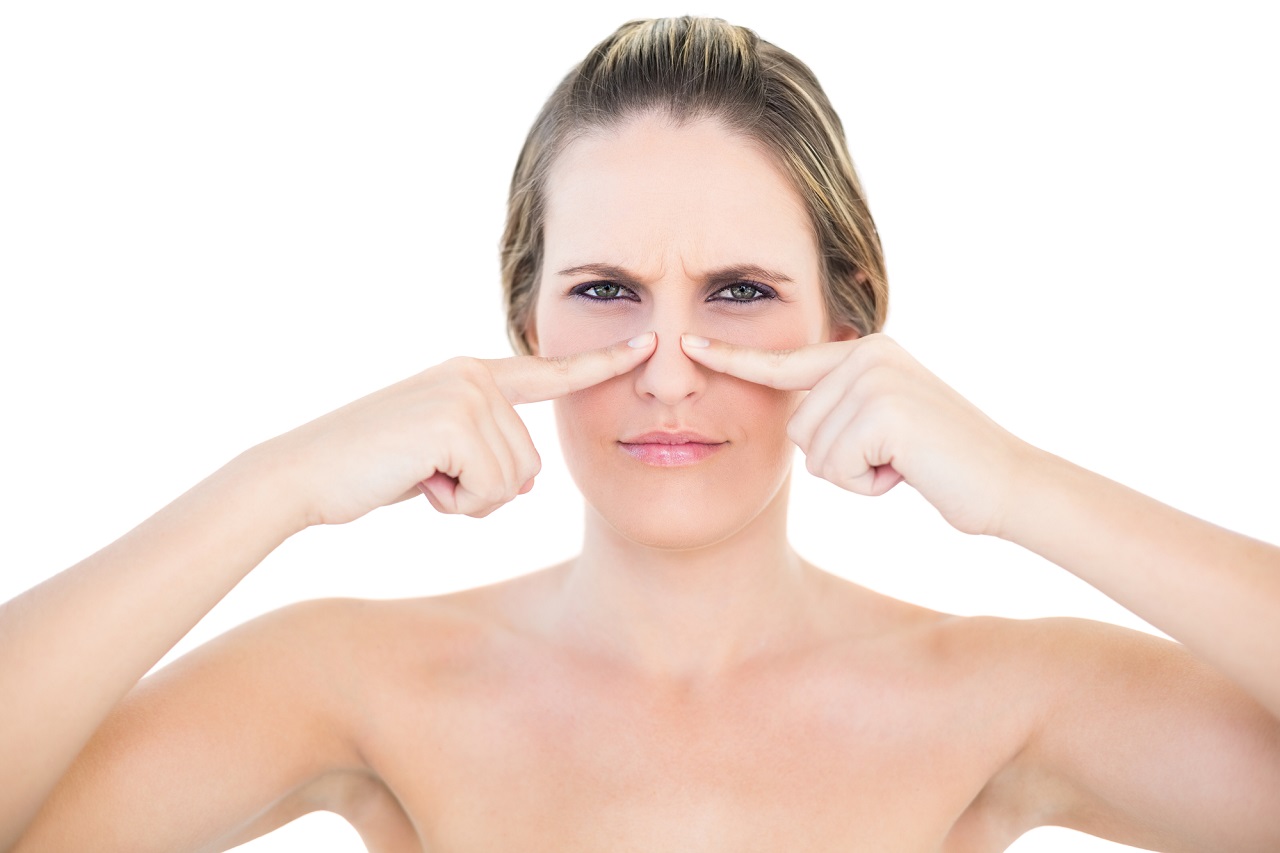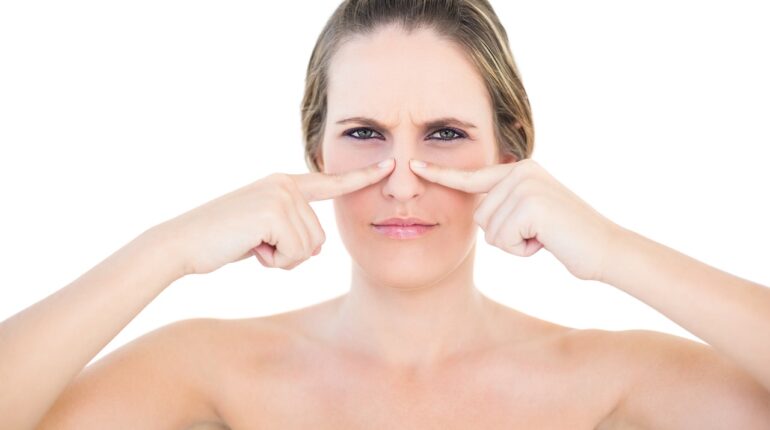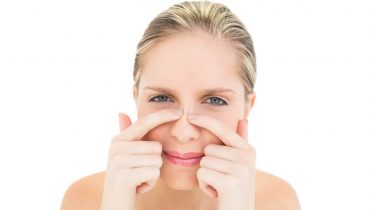We’ve all heard the advice never to squeeze a blackhead. You could injure your skin or introduce an infection. But to be honest, many of us can’t keep our hands away. Hunting and squeezing them is kinda addictive.
What if we actually followed that advice and never squeezed a blackhead. Would it die away? Would it grow bigger? And what’s the best way to remove a blackhead? We discuss that and more below.
What’s A Blackhead?

A blackhead is a milder and non-inflammatory form of acne. You mostly find it in teens and young adults because of hormonal changes, but they can occur even in adults.
Blackheads are clogged pores that are filled with oil (sebum) and dead skin cells. They occur when your skin produces excess oils.
Blackheads are open clogged pores. Exposure to air oxidizes melanin, making the clogged pores appear black. Of course, they are harder to spot in people with dark skin.
Blackheads are typically painless and have no effect on your physical health. However, many people feel self-conscious if they have blackheads on a visible area such as their face. They can affect mental health especially if they occur often.
Good to know: Blackheads are very similar to whiteheads. The only difference is that white heads are closed pores, and that’s why they appear white. But both are clogged with the same stuff – sebum and dead skin cells.
Why Shouldn’t You Squeeze A Blackhead?
There are good reasons why medical professionals advise people to avoid squeezing blackheads, no matter how tempting it is.
The biggest reason for this advice is to prevent infection. Your hands are not always clean and they could introduce germs into the open pore as you try to squeeze a blackhead.
Infection could worsen the blackhead, making it painful and swollen.
Another reason is that squeezing will not help if you have a blackhead that goes deep into the skin. The more you try to squeeze it out, the deeper you’ll push it. You could end up injuring your skin.
There are better and safer ways to deal with blackheads, which we discuss further below.
What Happens If You Don’t Squeeze A Blackhead?
What happens if you ignore a blackhead – no squeezing, no blackhead removers, no nothing?
If you don’t squeeze a blackhead or do anything to it, what happens depends on the nature of the blackhead.
If the blackhead is close to the surface of the skin, it will likely go away on its own. As the skin exfoliates naturally, the blackhead will fall off.
However, some blackheads are embedded deeper into the skin. These don’t go away on their own. If anything, they can get bigger as they collect more oil and dead skin cells.
They can also start trapping dirt and debris, making them even bigger and deeper. At some point, there’s a risk of bacterial infection.
If you want to see just how bad it can get, here’s a video from Dr. Pimple Popper.
The Best Ways To Remove Blackheads
There are plenty of safer ways to remove blackheads. These include over the counter drugs, medical treatments and easy home remedies.
Best Treatments for Blackheads
There are several prescription and non-prescription treatments for blackheads.
- Salicylic acid – salicylic acid helps the skin shed dead skin cells. So using salicylic acid products can help unclog blackheads and get rid of them. Examples of salicylic acid products include salicylic acid cleansers, moisturizers, gels and exfoliants.
- AHA and BHA exfoliators – alpha and beta hydroxy acids, such as glycolic acid, are also great exfoliators. They remove dead skin cells from the top layer of the skin, helping to unclog blackheads. Salicylic acid is actually a type of BHA.
- Retinoids – these are vitamin A based products that help to unclog pores, speed up exfoliation and reduce fine lines and wrinkles. Some of the best retinoids for blackheads include Differin, Retin-A and Tazorac.
- Benzoyl peroxide – this is often used to treat acne by killing bacteria that causes it. But it can also help get rid of blackheads by helping the skin shed dead skin cells and excess sebum. I’d, however, recommend starting with a retinoid before using benzoyl peroxide. It’s mostly useful for acne.
- Skin brush – if you don’t want to use any products on your face, try a skin brush. Skin brushes use soft bristles to gently exfoliate the skin, which can help remove and prevent black and white heads. You can find both manual and electric skin brushes.
If you have many blackheads that keep recurring, consider getting prescription-level treatment. For instance, there are prescription-strength retinoids that can tackle stubborn blackheads.
Also consider treatments like microdermabrasion, chemical peels and laser skin resurfacing. These work by removing the top layer of the skin, along with any blackheads.
Best Home Remedies For Blackheads
In many cases, you can get rid of surface blackheads using home remedies. For instance, you can make a homemade face scrub that exfoliates your skin and unclogs the blackheads.
A simple salt and sugar scrub can work wonders for your skin. Just remember to moisturize your face afterwards to keep your skin from producing too much oil.
You may come across people recommending tea tree oil, honey or antiseptic soap for blackheads. These are antibacterial products.
While they are great for your skin, they are not very useful for removing blackheads. That’s because blackheads are not caused by bacteria and typically don’t contain bacteria unless they get infected.
Antibacterial products are more useful for managing acne, since it’s caused or worsened by bacteria. .
How To Get Rid of Deep Blackheads
Deep blackheads are harder to get rid of compared to surface blackheads. Simple exfoliation won’t remove them. Most of the products we’ve discussed above also don’t work on overgrown blackheads.
The best way to get rid of deep blackheads is to go to a doctor or dermatologist. They have special tools — you may have seen them in Dr. Pimple Popper’s videos — for safely extracting a deep blackhead.
You can find home extraction tools online, but doctors don’t recommend using these. You may not be able to properly remove the blackhead and you could injure yourself, resulting in a wound, scarring or infection.
How To Prevent Blackheads
Removing blackheads doesn’t solve the root problem. If you don’t fix the underlying issue, they’ll keep coming back.
The best way to deal with blackheads is to prevent them. Here are some tips.
- A good skin care routine is important in blackhead prevention. Exfoliate regularly to prevent a build-up of dead skin cells and keep your skin moisturized to prevent overproduction of sebum.
- People with oily skin are at higher risk of blackheads. Using clay and charcoal masks can help draw out excess oils from your skin before they clog your pores.
- Even just washing your face every day with warm water and a soft towel can help prevent blackheads. You can also use a mild cleanser to help get rid of oils and skin products that can clog your pores.
- Use non comedogenic (meaning it won’t clog your pores) skin products to reduce the chances of blackheads forming. And remember to take off makeup at the end of the day to clear your pores.
- Certain foods such as those high in sugar (high glycemic carbs), dairy, trans fats and saturated fats have been linked to the development of acne, including blackheads and whiteheads. Try to adjust your diet and see if it makes a difference for your skin.
- Regularly using products like moisturizers with retinoids or BHA/AHA acids can help keep blackheads from forming by maintaining good skin exfoliation.
Final Thoughts
In most cases, blackheads are nothing to worry about. You can let them be and they’ll usually disappear on their own.
But if you have a recurring blackhead problem, it’s worth trying some of the products and solutions we’ve discussed above. A good skin routine – exfoliating and moisturizing – is especially important in removing and preventing blackheads.
If nothing seems to work, see a dermatologist.



